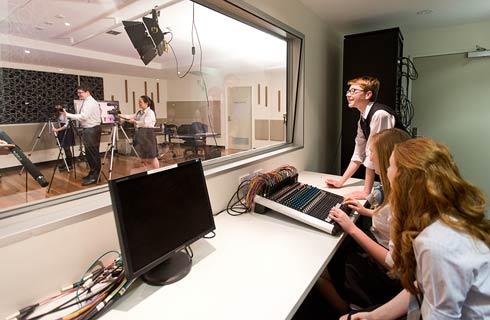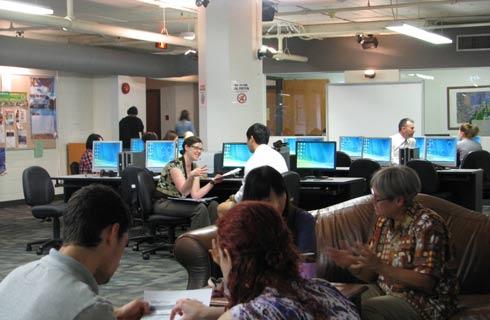- IDP China>
- 课程库>
- 工程与技术>
- 工程学及其相关技术>
- 工艺与资源工程>
- Bachelor of Engineering - Materials and Process Engineering (Honours)
工学学士-材料和过程工程(荣誉学位)
Bachelor of Engineering - Materials and Process Engineering (Honours)

学历文凭
Bachelor Degree with Honours

专业院系
School of Engineering

开学时间

课程时长

课程学费

国际学生入学条件
IDP—雅思考试联合主办方

雅思考试总分
6.5
- 雅思总分:6.5
- 托福网考总分:90
- 托福笔试总分:160
- 其他语言考试:Pearson PTE Academic - Overall score of 58 and no PTE communicative skills below 50
CRICOS代码: WI0144
申请截止日期: 请与IDP联系 以获取详细信息。
课程简介
Study a Bachelor of Engineering with Honours degree at the University of Waikato and build a solid foundation for your professional engineering career. Gain practical experience by applying what you learn to real-world situations. The Bachelor of Engineering with Honours (BE(Hons)) degree focuses on how complex engineering problems that matter to society can be solved using engineering design principles and methods. At every stage of your degree, you'll be involved in conceptualising, designing and creating sophisticated engineering products, structures or processes. At the University of Waikato you will have the opportunity to explore the key, over-lapping disciplines of materials engineering and process engineering. Materials engineers make critical decisions in selecting and developing the best materials for a particular purpose. As a materials engineer you could work on a number of diverse projects, including understanding the properties and uses of wood and steel, designing and constructing new filters for sewage treatment, and providing new materials for the energy industry. Process engineers make critical decisions in the processes and utilities required to manufacture a product. As a process engineer you could work on converting trees into paper and fibre board, iron sand into steel, effluent into drinkable water and producing solar panels for electricity generation.
相关申请
 预科
预科 奖学金
奖学金 实习机会
实习机会 在校学习
在校学习 跨境学习
跨境学习 校园授课-线上开始
校园授课-线上开始 在线/远程学习
在线/远程学习
开学时间&学费
学费信息仅供参考,请与IDP联系以获取详细信息
| 开学时间 | 时长 | 学费 | 地点 |
|---|
学校排名

世界排名401
数据源:
泰晤士高等教育世界大学排名
关于怀卡托大学

怀卡托大学成立于1964年,被公认为新西兰研究实力顶尖的大学,在2025年QS世界大学排名中位列新西兰前三,全球排名第235位。怀卡托管理学院位列全球商学院前1%。学院以追求卓越和创新而闻名,提供由顶尖学者和知名国际教授授课的优秀学术课程。怀卡托大学每年提供超过2000个实习机会或行业主导的项目,并与政府、行业和社区组织建立了牢固的合作伙伴关系,从而为学生提供更广泛的职业选择和实践学习机会。该大学在汉密尔顿和陶朗加拥有两个充满活力的校区,均位于新西兰出口导向型经济的中心地带。这两个校区营造了充满活力、包容的氛围,营造了一个互相支持的社区,让学生在学业和社交方面都能蓬勃发展,让他们在学习期间感到宾至如归。校园内拥有70多个俱乐部和120多个社团,学生可以参加各种各样的活动。这些俱乐部涵盖各种类别,从学术俱乐部、兴趣俱乐部到体育和文化组织,满足学生的广泛兴趣。国际学生还将获得全面的学业和职业支持,帮助他们适应新国家的生活。
本校相关课程
其他相关课程

工程学硕士(采矿)
 阿德莱德大学
阿德莱德大学学历文凭
Masters Degree (Coursework)
开学日期
课程费用总额


专业工程学硕士(化学和生物分子)
 悉尼大学
悉尼大学泰晤士高等教育世界大学排名:54
学历文凭
Masters Degree (Coursework)
开学日期
课程费用总额


工学学士(荣誉学位)(化学)
 阿德莱德大学
阿德莱德大学学历文凭
Bachelor Degree with Honours
开学日期
课程费用总额


石油工程研究生文凭
 科廷大学
科廷大学泰晤士高等教育世界大学排名:256
学历文凭
Graduate Diploma
开学日期
课程费用总额


工学学士学位(石油工程)(荣誉学位)
 科廷大学
科廷大学泰晤士高等教育世界大学排名:256
学历文凭
Bachelor Degree with Honours
开学日期
课程费用总额


加工厂技术文凭
 西澳大利亚州职业技术学院
西澳大利亚州职业技术学院学历文凭
Diploma
开学日期
课程费用总额










 新西兰
新西兰





